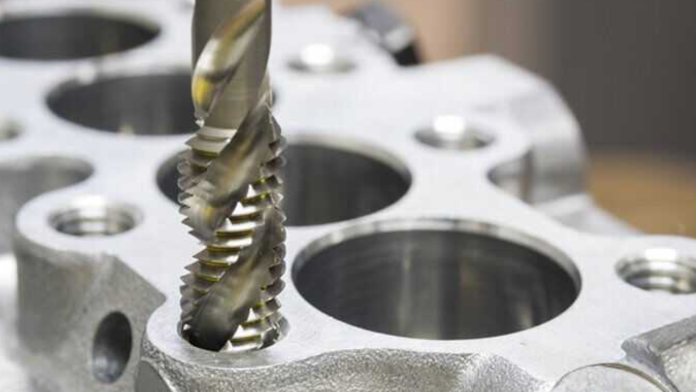Aluminum forging is a manufacturing technique that involves the shaping of aluminum alloys using heat and pressure. This process improves the mechanical qualities of the material, making it stronger and more durable for a variety of uses. Aluminium is forged into complicated components appropriate for industries such as aerospace, automotive, and industrial manufacture due to its lightweight nature and corrosion resistance.
To make the alloy malleable, the aluminum forging process normally begins with heating it to a certain temperature in the range of 700°C to 500°C. The material is then shaped into the appropriate shape using precision dies and tooling. The method aids in the alignment of the grain structure of the aluminum, hence optimizing its mechanical qualities.
When compared to other manufacturing methods, aluminum forging offers advantages such as an enhanced strength-to-weight ratio, reduced waste, and the ability to construct complicated shapes with tight tolerances. You can click here to learn about aluminum-forged components. The forged components that result have improved structural integrity and can endure harsh working conditions.
Extensive Application Range of Aluminum Forged Components
Because of their remarkable strength-to-weight ratio, longevity, and versatility, aluminum-forged components have become vital across a wide range of industries. Forged aluminum’s distinct characteristics make it a popular choice for applications ranging from aerospace and automotive to marine and beyond. We will delve into the vast application spectrum of aluminum-forged components in this in-depth research.
Aerospace Industry
The aircraft industry is a classic example of one where high-performance materials are in high demand. Aluminum forged components are essential in aircraft construction because they combine strength, lightweight characteristics, and corrosion resistance. Aluminum alloys such as 7075 and 2024 are preferred for their ability to withstand the harsh demands of flight, from forged wing structures to key landing gear components.
Automotive Applications
Aluminum forged components have revolutionized the automotive industry by enabling the production of lightweight, fuel-efficient vehicles with improved performance. Engine components such as pistons, connecting rods, and crankshafts benefit from the increased strength and weight reduction provided through forging. Furthermore, aluminum forged wheels, suspension components, and gearbox parts have become common in high-performance and luxury automobiles, boosting handling and the overall driving experience.
Marine and Naval Industry
To meet the challenges offered by hostile marine environments, the marine industry relies on aluminum-forged components. Marine-grade aluminum alloys, such as 5083, have high corrosion resistance, making them ideal for forging ship hulls, superstructures, and vital structural elements. Aluminum’s small weight also helps with fuel efficiency and buoyancy, making it a popular choice for a variety of nautical applications.
Sporting Equipment
Aluminum-forged components have made their way into the realm of sports and recreation, most notably in the production of high-performance athletic equipment. Aluminum forging enables the fabrication of sporting equipment that fulfills the tough demands of athletes and outdoor lovers, from bicycle frames forged with aluminum 6061 or 7075 for optimal strength and weight balance to climbing gear components that require both durability and lightness.
Defense and Military Applications
Aluminum forged components serve a key role in defense and military applications where strength, durability, and weight are critical aspects. The lightweight yet strong nature of forged aluminum benefits aircraft components, armored vehicles, and armament systems. Aluminum-forged components are vital in the defense industry due to their ability to withstand harsh conditions while maintaining structural integrity.
Industrial Machinery
Aluminum-forged components contribute to the production of diverse industrial machinery by balancing strength and workability. Forged aluminum parts are used in hydraulic systems, tooling, and heavy machinery components because of their endurance and resistance to wear in harsh industrial conditions.
Renewable Energy Infrastructure
The use of aluminum-forged components in the building of wind turbines and solar panels is increasing as the need for renewable energy sources develops. Aluminum’s corrosion resistance and light weight make it a suitable material for outdoor components, contributing to the efficiency and longevity of renewable energy infrastructure.
Oil and Gas Sector
Aluminium forged components assist the oil and gas industry in a variety of applications, including the construction of offshore platforms and drilling equipment. Certain aluminum alloys’ corrosion resistance, combined with their strength, makes them suitable for components exposed to extreme environments in oil and gas exploration and extraction.
Sum Up
Aluminum-forged components have a wide range of applications that are constantly expanding as technology develops and industries evolve. Aluminum alloys’ distinct qualities, such as their strength, lightweight nature, and corrosion resistance, make them a popular choice in a variety of industries. Aluminum-forged components continue to influence the modern world, from the heavens to the sea.










